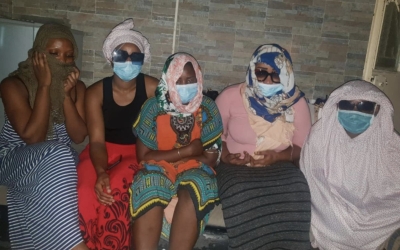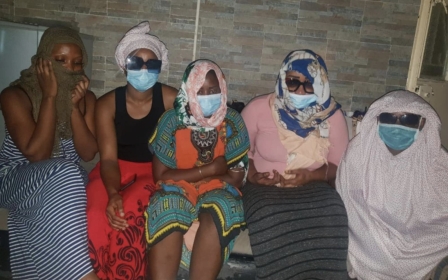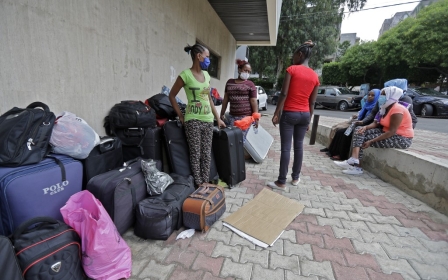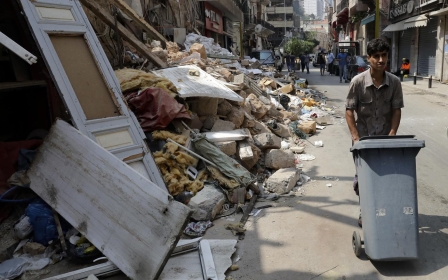Gambian migrant workers repatriated after months stranded in Lebanon

Dozens of Gambian workers stranded in Lebanon for months were able to return home earlier this week despite a lack of support from their government, an NGO confirmed.
In a statement released on Friday, Action for Humanity confirmed that it had "facilitated the repatriation of 38 Gambian women including two children from Beirut". With no direct flights between Lebanon and Gambia, the NGO paid for flights to the Senegalese capital Dakar and organised buses to the women's hometowns.
"The reaction of the women once they arrived at the end of the long journey was relief," the NGO's executive director, Lovette Jallow, told Middle East Eye on Sunday. "Relief to be out of Lebanon and on African soil again, from Dakar to Gambia. Happiness to see their family and to rest since the journey took almost 24 hours with flights and buses."

The repatriated Gambian women were among thousands of domestic workers from African or Asian countries who were abandoned or forced to flee employers unable to pay them in Lebanon while the country suffers from a crippling economic crisis, further compounded by the coronavirus pandemic.
Migrant workers are employed under the exploitative terms of the kafala system, widespread across Lebanon and parts of the Middle East, which grants employers the power to control migrant workers' movements and leaves them vulnerable to abuse.
The women began to lobby for repatriation more than nine months ago, urging Gambian authorities to help them leave Lebanon, despite many having had their passports confiscated by former employers.
The situation became more urgent following the devastating explosion in Beirut port on 4 August that killed around 190 people, injured 6,000 more and severely damaged whole neighbourhoods.
Action for Humanity said the women had faced difficulties getting help from their consulate in Lebanon.
"The women expressed frustration at the lack of support from the Gambian consul in Beirut, thus leaving them helpless and fending for themselves in quite difficult circumstances in Lebanon," the NGO stated.
When Action for Humanity contacted the Gambian government in the capital Banjul, it said the Foreign Ministry "was not forthcoming" in helping its citizens, prompting Jallow to take the matter into her own hands.
Gambia's Lebanon consul criticised
The Gambia's honorary consul in Lebanon has been criticised for dismissing the concerns of women seeking to leave the country
"These girls are not telling the true situation here. They just want a free passage and a full waive of their penalties," Khalid Hammoud, who is of Lebanese descent, told a Gambian newspaper last month, referring to the fee imposed on those who flee employers.
"Lebanon is currently in a mess after this horrific blast, and these women should take it easy and not make life difficult for our government back home and us here."
A Gambian consulate official had reportedly rubbished Jallow's efforts to repatriate the women, according to a recording of a conversation heard by MEE in August.
"When this woman [Jallow] buys you a ticket, come and spit in my face," the official can be heard saying to one of the domestic workers. "I give you the authority to come and spit in my face. There are too many people saying we are going to… when it comes to reality nobody will do anything."
Meanwhile, Action for Humanity expressed its "shock and dismay" at Gambian authorities in Banjul for not taking more effective action to bring its citizens back home, and for ineffectively communicating with the NGO, creating confusion at several points in the repatriation process.
"Action for Humanity is not a competitor or a rival of the Gambia government," the organisation's statement said. "We wished we had received the full cooperation of the Gambia government from the onset, which would have served to save resources and maximise our efforts for the benefit of our citizens."
Additional reporting from Amandla Thomas-Johnson in Dakar.
Middle East Eye delivers independent and unrivalled coverage and analysis of the Middle East, North Africa and beyond. To learn more about republishing this content and the associated fees, please fill out this form. More about MEE can be found here.




